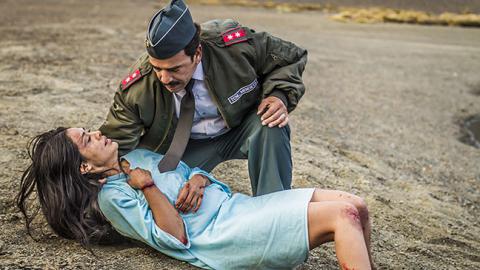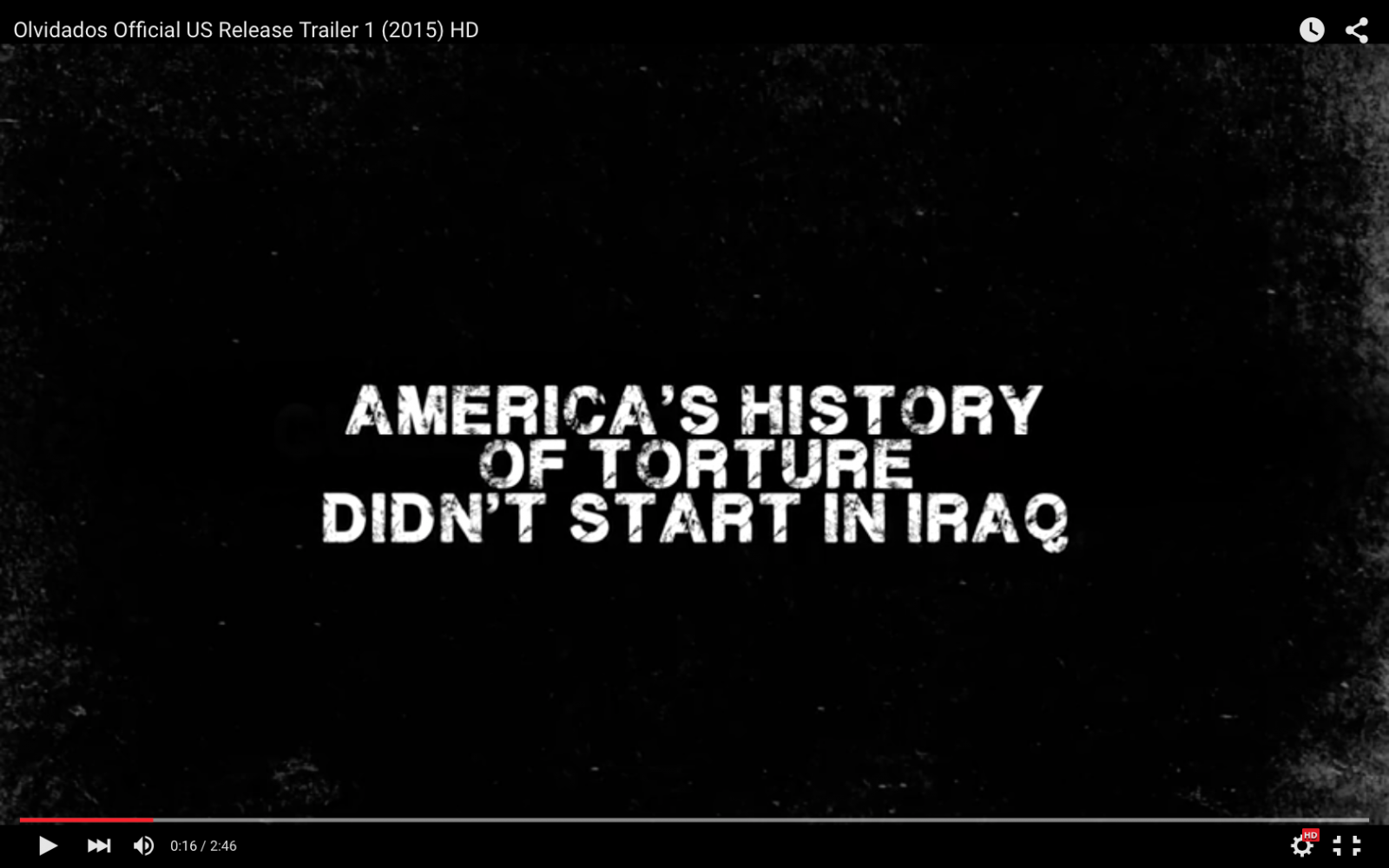film Film Review: Carlos Bolado’s ‘Olvidados’ Uncovers the CIA’s Role in Latin America’s Bloodiest Dictatorships
Forgotten / Olvidados is one of the most important Bolivian films to emerge recently, marking a high point of technical achievement for the country’s film industry. The film serves as powerful indictment of the military personnel who were responsible for thousands of deaths and disappearances of political dissidents in Latin America during Operation Condor, estimated at 30,000 forced disappearances, 50,000 deaths, and 400,000 arrests. Beginning in 1975 the political campaign of repression spanned across Argentina, Chile, Bolivia, Brazil, Uruguay, and Paraguay—carried out by the right-wing military dictatorships and backed by the CIA. The ruthless campaign of suppression targeted opposition movements, including students, Marxists, Communists, and political parties that were deemed threats to the authoritarian governments.
Mexican actor, Damián Alcáraz plays General José Mendieta, a callous official tasked with the arrest, torture of dissidents under the guise of Operation Condor. General Mendieta shows some initial reluctance at carrying out the orders from his superiors. In his old age, the atrocities he committed in the past start to weigh on his psyche. The ruling class responsible for spearheading forced disappearances has rarely faced the justice system or made to answer for their crimes. The perpetrators of such atrocities have grow old and frail, dying of old age, something denied to the many victims they executed
After General Mendieta suffers heart attack during a walk around the city, in which he encounters one of his former victims, he begins to craft a letter a letter to his son Pablo (Bernardo Peña), now living in New York. In the letter he admits his involvement in the campaign of terror. In flashbacks we see his how he was one of the masterminds of Operation Condor, where students, activists, and political opponents were followed, their meetings infiltrated by military personnel; when the order arrived, soldiers descended, forcibly taking their targets in broad daylight. The journalist Marco (Carlos Cotta) and his wife Luíca (Carla Ortiz) are among those taken by the military.
“Ramon Diaz. Thirty-nine. Monica Paz. Twenty-five. Luis Maldini. Sixty. Horacio Belette. Forty-two, Laura Gonzalez. Forty-three,” a jailed, dissident utters the names and age of those he shared his jail cell with the night before, but were taken away in the dark of the night military forces. The repetition of their names serves as a mnemonic device to keep the identities alive, should any of the newly arrived prisoners manage to escape alive. While imprisoned the dissidents argue over their ideals that led to their imprisonment asking if their involvement is pursuit of social justice was it worth it.
The strength of the film lies in its painfully accurate portrayal of torture. The most powerful scenes occur in the jail cells, when the dissidents are subjected to torture and in the streets where protesters voice their opposition to the military dictatorship. The torture techniques used by the US officials in the Middle East against perceived terrorist threats were perfected decades earlier—in the CIA backed campaigns against political opponents in Latin America. When torture is still glorified by some political circles, the realistic portrayal of the toll of electrocution, water torture, rape, and isolation, dispels the fantasy that torture can be a useful method to extract information. The film makes evident, that anyone under duress will say what is needed to end the pain.
It is less successful in offering insight into the history of the region, offering but a glimpse of archival footage of US Secretary of State Henry Kissinger and a brief look at the training of soldiers at the infamous School of the Americas by US military personnel.
Forgotten was directed by Mexican Carlos Bolado, whose filmography has focused on social justice themes including Tlateloco: Verano del 68, the documentary about the 1968 student massacre in Mexico City, and Colosio: The Assassination, a film about the murder of Mexico’s presidential candidate Luis Donaldo Colosio. Filmed over 3 months in Bolivia, Chile and New York, the Chilean desert offers a lush backdrop—a jarring contrast against the brutality of the military repression.
The film was written and produced by actress Carla Ortiz who was born in Cochabamba, Bolivia. The film was years in the making, with Ortiz saying “that we urgently need to recuperate our historical memory, in order to not let history repeat itself” adding “it is important for the Americans to understand what their government keeps doing wrong or keeps on abusing its power for their benefit.” The disappearance of students, activists, and political dissidents, and the continued impunity and lack of prosecutions of the perpetrators of Operation Condor remains an injustice that plagues Latin America.
With the one-year anniversary of the disappearance of forty-three students from the Teachers College in Ayotzinapa, Mexico approaching, Forgotten reminds us that military repression has a long and painful history across the continent, the tactics employed by repressive military forces now, have been perfected through decades of forced disappearances of dissidents.
The film opens in theaters on September 18, in New York and October 2, in Los Angeles followed by a December release on HBO Latino.
[José Raúl Guzmán writes about Latin American film. He received a Masters degree in Latin American and Caribbean Studies from New York University.]



Spread the word